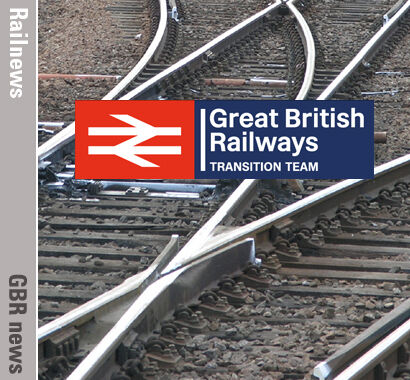The publication of the Government’s draft Rail Reform Bill has been given a broad welcome by much of the rail industry, although there have been some exceptions.
The House of Commons Transport Committee has announced an inquiry in which it will scrutinise the details of the Bill, which sets out the basis for setting up Great British Railways. This would be the public name for what would be legally known as the Integrated Rail Body, or IRB.
One revelation is that the IRB will not absorb Network Rail, as had been thought. Instead, Network Rail will become the IRB and take over various functions, including the awards of passenger contracts which have been made by the transport secretary since the Strategic Rail Authority was abolished in 2006.
Such a change will need primary legislation, and this draft Bill starts to pave the way for that, but Labour has expressed doubt that this Bill will ever become law, because the party says that it would gradually renationalise the passenger railway in England by not renewing contracts when they expire, as has already happened in Scotland and Wales.
The audience at the Bradshaw Address in London last night heard from rail minister Hue Merriman and Labour’s shadow rail minister Stephen Morgan.
Speaking at the event, which is organised by the private sector lobby group Rail Partners, the group’s chief executive Andy Bagnall told the speakers that, ‘without actual legislation to create Great British Railways, the central tenets of the Plan for Rail are in the sidings’ and that ‘we don’t agree that a public monopoly is the best way to fix the industry’.
Railway Industry Association chief executive Darren Caplan said: ‘Last May, RIA and 70 of our members wrote to Prime Minister Rishi Sunak about the need to take the establishment of Great British Railways forward. So whilst we would have wanted a full Transport Bill providing for GBR progressing already, it is good that the Government is at least taking this preliminary step towards unifying track and train, and developing a “guiding mind” and a long-term plan for the railway.
‘At a time when rail demand is showing a steady and continuing upturn, and with the RIA-commissioned Steer Report published just this week reporting that passenger numbers will grow between 37 per cent and 97 per cent to 2050, the Government needs to accelerate the legislative process without delay.’
Silviya Barrett from the charity Campaign for Better Transport said: ‘We welcome the publication of this draft bill, which is a much-needed step towards long-awaited rail reform, now we need to see it move swiftly through to the next stage. In the meantime, we urge the Government to move forward with changes that do not require legislation, including meaningful reforms to ticketing that deliver actual benefits and better value for passengers.’
The chairman of the House of Commons Transport Committee Iain Stewart has also welcomed the publication of the draft Bill. He continued: ‘Proposals to set up Great British Rail as a guiding mind for the rail sector have been broadly supported, and legislation to get these important reforms on track has been long awaited. The Transport Committee will soon launch an inquiry to scrutinise the draft Bill in detail and without delay. We will welcome views from across the sector, and will look to complete our work in good time before Parliament’s summer recess.’
Alex Robertson, who is chief executive Transport Focus, warned that ‘Passengers will judge these reforms based on whether they deliver more punctual, reliable services and better value for money. They also want to know who is in charge, so today’s step towards setting up Great British Railways is welcome.
‘We look forward to playing our role in making sure passenger interests are at the heart of how the changes are implemented.’
However, RMT general secretary Mick Lynch was not enthusiastic, saying: ‘This bill in its current form will do nothing to address the 30-year long decline in our railways since privatisation.
‘The government's priority is to support privatised companies so they can continue to extract huge profits and pay dividends to wealthy shareholders.’
TSSA general secretary Maryam Eslamdoust said: ‘The Tories are once again trying to rearrange the deck chairs after 14 years of their repeated failures.
‘The draft Rail Reform Bill is completely inadequate. It does not address the damage that privatisation has done to our railways and infrastructure. It does not offer the fundamental changes that we need to deliver a fair deal for passengers and transport workers. The Conservative Government are simply on the wrong track.
‘The only way to sort out the mess unleashed by the Tories’ botched privatisation of our railways is public ownership, full stop. Thankfully, Labour is now committed to this, which can't come soon enough.’


